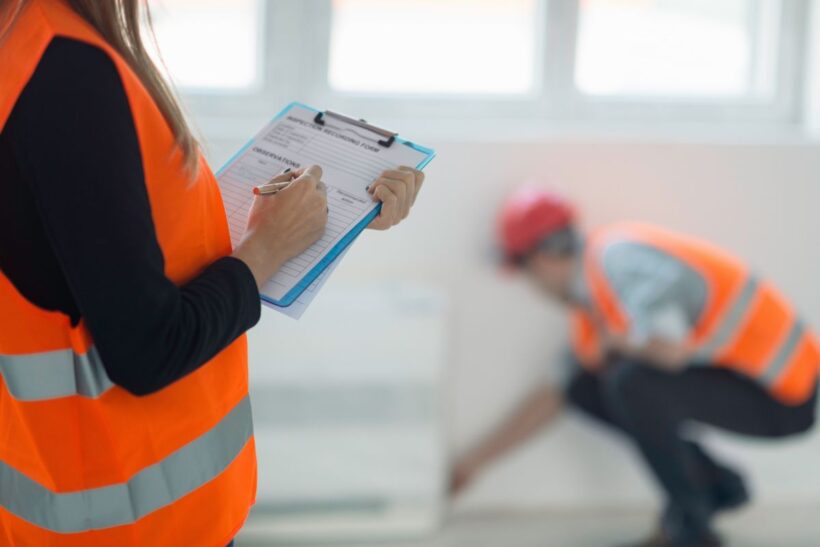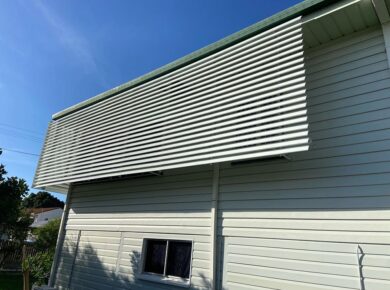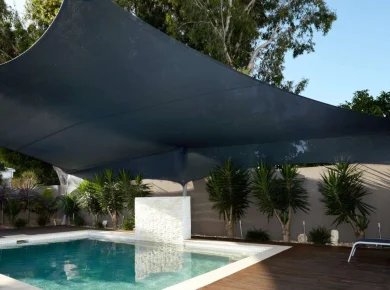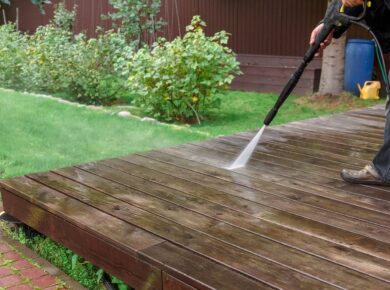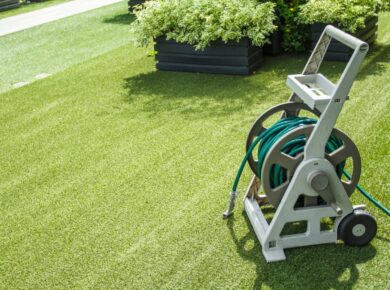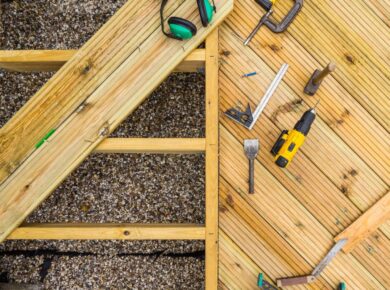As a business owner or office manager, you have a lot on your plate, like managing employees and meeting deadlines. However, one important aspect of a successful business that often gets overlooked is building maintenance.
Keeping your building in good shape not only ensures a safe workplace but also saves you money by using efficient and eco-friendly solutions, reducing expensive repairs. In this blog post, we’ll discuss essential building maintenance tasks for business owners.
Being a business owner doesn’t automatically make you an expert in building maintenance. Running a business demands various skills, such as financial management and marketing. Maintaining a building, on the other hand, requires expertise in areas like building structures, electrical systems, and plumbing, along with knowledge of local building codes. But don’t worry if you lack these skills; there are resources available to help you handle this aspect of business ownership. It’s about knowing which tasks to address, when to hire professionals, and how to budget for these expenses.
Building maintenance goes beyond regular cleaning. It involves aspects like proper ventilation, sufficient lighting, and routine inspections to ensure everything works well. You should also plan for emergencies like power outages, floods, and fires, as they can cause significant damage if not addressed promptly.
So, if you’re responsible for a business premises, here are some important tasks you need to consider.

HVAC System Maintenance
Heating, ventilation, and cooling systems (HVAC) are crucial for keeping your workplace comfortable. This includes things like air conditioning, heating, ventilation, and air filters. To keep these systems working well, you should regularly take care of them. Ignoring them can lead to bad air quality and system breakdowns. Schedule regular checks, replace filters and ducts when needed, and fix any issues right away to keep your HVAC system running smoothly.
Many businesses want energy-efficient HVAC solutions to save money and be kinder to the environment. Here are some popular options:
- Geothermal Heat Pumps: These pumps use the Earth’s steady temperature to heat and cool your space efficiently, even though they may cost more upfront.
- Energy Recovery Ventilators (ERVs): ERVs help clean indoor air and save energy by reusing energy from exhaust air.
- Programmable Thermostats: These devices let you set heating and cooling schedules so you don’t waste energy when the building isn’t in use. Modern ones even allow adjustments through your smartphone.
- High-Efficiency Boilers and Furnaces: New boilers and furnaces are much better at using energy. Replacing your old system with a high-efficiency one can save you a lot on energy bills.
- Variable Refrigerant Flow (VRF) Systems: These systems control how much refrigerant goes to each part of the building. This means you can have different temperatures in different areas, saving energy.
However, getting these solutions is great, but they need proper installation and maintenance to work well. Always hire a professional HVAC contractor to make sure they perform at their best.
Plumbing System
Plumbing problems can pop up unexpectedly and disrupt your business operations. To avoid this, checking on a monthly basis would be recommended. This includes regularly checking for leaks and drips, inspecting all pipes (even the ones underground), and flushing your water heater periodically. Addressing plumbing issues promptly can save you money and prevent more significant problems down the road. Make sure you have a local plumber or plumbing company on hand for assistance when needed.
Efforts to make your building more efficient and eco-friendly extend beyond just energy use; they also involve water conservation. Here are some eco-friendly plumbing solutions to consider:

- Low-Flow Fixtures: These fixtures, like showers, faucets, and toilets, reduce water usage without sacrificing performance. They’re a smart way to save water and cut your water bills.
- Rainwater Harvesting Systems: These systems collect and store rainwater for later use, like watering plants or flushing toilets. This not only conserves water but also eases the strain on your city’s water supply.
- Greywater Systems: Greywater is water used in sinks, showers, and washing machines. Greywater systems recycle this water for garden use and flushing toilets, reducing the need for fresh water.
- Tankless Water Heaters: Unlike traditional water heaters, tankless models heat water on demand, reducing energy usage and saving you money in the long run.
- Water-Saving Appliances: Invest in water-efficient appliances such as dishwashers and washing machines. They use less water and energy while performing well.
- Piping Insulation: Insulate your pipes to prevent heat loss as water travels from your heater to the faucet. It can also prevent pipes from freezing in cold weather.
Electrical Systems
Your business relies on its electrical system to power essential equipment and keep operations running smoothly. To avoid downtime and potential electrical dangers, it’s essential to maintain your electrical system properly. Regular inspections and upkeep should involve checking for damaged wires, ensuring outlets function correctly, inspecting breakers, and promptly fixing any electrical problems.
When it comes to energy-efficient electrical solutions, businesses have various choices:
- LED Lighting: LED lights use much less energy than traditional bulbs and last longer. They also produce less heat, reducing the strain on your air conditioning system.
- Energy-Efficient Appliances: Choose appliances with the Energy Star label. They use less electricity without sacrificing performance.
- Solar Panels: These renewable energy sources can significantly reduce your reliance on grid electricity, leading to lower energy bills and a smaller carbon footprint.
- Smart Power Strips: These devices can detect when connected appliances are idle and cut off power, preventing wasted energy.
- Energy Management Systems (EMS): EMS can monitor and control a building’s energy use, optimize usage, and identify inefficiencies.
Just like with HVAC and plumbing solutions, proper installation and maintenance are crucial to ensuring these electrical solutions work effectively. Always collaborate with a qualified electrical contractor to maximise energy efficiency and safety.
Exterior Maintenance
The exterior of your building serves as the initial impression visitors, customers, and employees have of your business. It not only represents your brand and professionalism but also plays a crucial role in safeguarding your premises from the wear and tear of the elements. Proper exterior maintenance is a key aspect of ensuring that your building remains in top-notch condition.

Here are some important aspects of exterior maintenance:
- Regular Cleaning: Regularly cleaning the exterior surfaces, such as walls, windows, and sidewalks, not only enhances the visual appeal of your property but also prevents the buildup of dirt, grime, and mould that can lead to costly repairs.
- Painting: Applying a fresh coat of paint not only revitalises the appearance of your building but also serves as a protective barrier against the elements, helping to prevent structural deterioration. Make sure to apply exterior structure with outdoor paint, because a good outdoor paint can withstand UV rays and rain, hot and cold. Selecting the correct paint to suit the surface can also help extend your paint’s lifespan.
- Water Damage Inspection: Regularly inspecting the building for signs of water damage, such as leaks, dampness, or discolouration, is crucial. Identifying and addressing water-related issues early can prevent more extensive and expensive problems like rot and mould growth.
- Roof Inspection: Your roof is your building’s primary defence against rain, snow, and other weather conditions. Regular inspections can help detect and address issues like damaged shingles, leaks, or loose flashing before they lead to more extensive damage.
- Landscaping and Grounds Maintenance: Well-maintained landscaping not only improves the overall aesthetics of your property but also contributes to safety and accessibility. Properly trimmed trees and shrubs, well-maintained walkways, and adequate lighting can prevent accidents and enhance the overall experience for visitors.
- Pest Control: Regular pest control measures can help prevent infestations that could lead to damage to the building’s structure and create an unpleasant environment for occupants.
- Signage and Lighting: Ensure that your external signage is well-maintained and that exterior lighting is in good working order for both security and visibility.
Emergency Preparation
It’s vital to be ready for emergencies in your building. This means creating and following an emergency plan and making sure all alarms and detectors work correctly. Regularly inspect your emergency generators, fire alarms, and smoke detectors. Teach your staff how to handle emergencies and what to do during evacuations. Conduct fire drills regularly to make sure everyone knows what to do if there’s an emergency.
Maintaining your building might feel overwhelming, but it’s for your business’s success. Being proactive about keeping your building in good shape can save you money, keep your employees safe, and ensure your operations run smoothly.
Remember to include HVAC, plumbing, electrical systems, exterior maintenance, and emergency preparedness in your regular maintenance routine.
